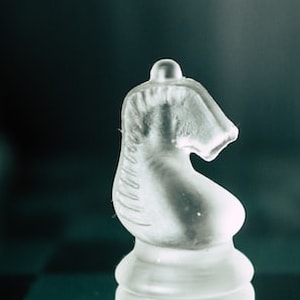play the ball and not the man: Idiom Meaning and Origin
What does ‘play the ball and not the man’ mean?
"Play the ball and not the man" means to focus on the issue at hand (the ball) rather than attacking the person involved (the man).

Idiom Explorer
The idiom "play up" means to emphasize or highlight something, often in order to gain attention or elicit a certain reaction. It can also refer to exaggerating or overplaying a situation or a person's abilities.
"Play to win" is an idiom that means to engage in a situation or activity with the intention of achieving victory or success, rather than just participating or going through the motions. It emphasizes the importance of being competitive and putting forth one's best effort to achieve a specific goal or outcome.
The idiom "play the victim card" means to intentionally act like a victim in order to gain sympathy or to avoid taking responsibility for one's actions.
The idiom "play the man and not the ball" means to focus on attacking or criticizing someone personally instead of addressing the issue at hand. It implies a diversion from the main point of the argument and resorting to personal attacks instead.
The idiom "play the gender card" means to use one's gender as a way to gain advantage or manipulate a situation, typically in an unfair or strategic manner.
The idiom "play the field" means to date or have romantic or sexual relationships with multiple people at the same time, without committing to any one person. It implies a desire to explore one's options before settling down.
The idiom "play the angles" means to use clever or strategic tactics to achieve a desired outcome or advantage.
The idiom "play second fiddle" means to take on a subordinate or less important role.
The idiom "play politics" means to use strategic and manipulative tactics to gain advantage, often in a workplace or social setting.
Mastering Strategic Engagement
The idiom "play the ball and not the man" is a metaphorical expression that emphasizes fair play and focusing on the game instead of attacking or criticizing individuals. It originated in sports, particularly in rugby and soccer, but has gained wider use in various contexts. The idiom advises individuals to stay focused on the task at hand and avoid personal attacks or distractions. It promotes fairness, integrity, and objectivity in both sports and everyday situations.
One possible origin of the idiom can be traced back to Australian Rules Football, where players are expected to prioritize the ball itself instead of targeting opponents. Similarly, rugby emphasizes playing the ball forward rather than purposely injuring opponents. The idiom's usage in soccer further solidified its significance, promoting a balanced and honorable approach to the game.
Beyond its sports origins, "play the ball and not the man" is commonly used as a figurative expression in political discourse. It advises politicians and debaters to stick to the issue and avoid personal attacks. The idiom's application extends to everyday situations as well, urging individuals to concentrate on the main topic rather than resorting to personal criticisms or distractions.
The idiom's meaning is closely associated with the concept of fairness and integrity. By adhering to the principle of playing the ball and not the man, individuals demonstrate their commitment to objectivity and maintaining a level playing field. This idiom encourages individuals to rise above personal biases, prejudices, or petty disputes and focus on the facts, issues, or tasks at hand.
It is important to note that while "play the ball and not the man" is widely recognized and understood, its usage may vary depending on cultural and linguistic contexts. In some instances, the idiom may be modified slightly to include "play the ball and not the player" or "play the ball, not the man." However, these variations maintain the central message of avoiding personal attacks and concentrating on the matter being discussed.
The idiom's enduring popularity reflects the universal desire for fairness and impartiality in various arenas of life, from sports to politics to everyday interactions. It serves as a reminder to individuals to rise above personal hostilities and focus on the bigger picture. The idiom "play the ball and not the man" continues to hold relevance and serves as a valuable reminder to prioritize fairness and objective thinking.
"play the man and not the ball" is a related idiom that encourages individuals to focus on individuals rather than the actual matter at hand. While this idiom may seem contrary to "play the ball and not the man," it is important to recognize that both idioms seek to provide perspective and balance in different situations. While "play the ball and not the man" emphasizes fairness and objectivity, "play the man and not the ball" directs attention to the individuals involved, urging individuals to consider the personal element rather than getting lost in the game itself.
"play ball" is another related idiom that shares similarities with "play the ball and not the man." It is commonly used in sports contexts, particularly in baseball, to initiate the game and encourage fair play. Similar to "play the ball and not the man," "play ball" emphasizes the importance of focusing on the game and following the rules, rather than engaging in personal attacks or distractions. Both idioms promote integrity, fairness, and cooperation in the sporting world.
Example usage
Examples of how the idiom play the ball and not the man can be used in a sentence:
- During the debate, it is important to focus on the arguments being presented rather than attacking the person delivering them. We should always play the ball and not the man.
- In a competitive sports match, it is crucial to stay focused on the game and not engage in personal attacks or aggression towards the opposing players. The key is to play the ball and not the man.
- During a team collaboration, it is essential to separate constructive criticism of ideas from criticizing the individual who came up with them. It is important for everyone to remember to play the ball and not the man.
More "Sports" idioms



